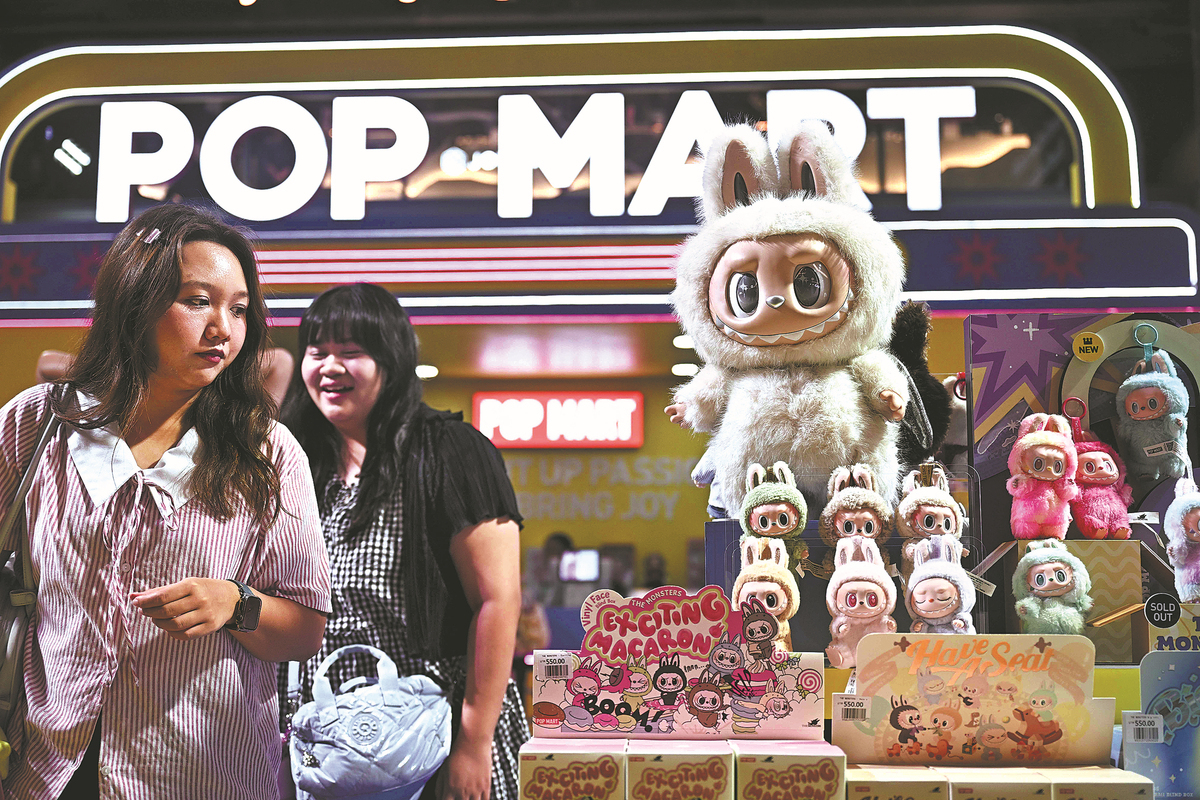Why do the young woo Labubu?


It's dangling from Hermès bags in Paris. It's selling out in seconds in Tokyo. In Bangkok, it's now a cultural ambassador — officially endorsed by the Tourism Authority of Thailand. Labubu, a snaggle-toothed, wild-eyed forest creature from Chinese toy brand Pop Mart, has gone from underground oddity to global fashion icon.
In New York, fans are camping outside Pop Mart stores like they were heading to a concert. In London, collectors are clashing over the last blind box. And in Beijing, a human-sized Labubu recently fetched $150,000 at an auction. The brand's latest feat? A collaboration with Louis Vuitton — the plush gremlin turned luxury icon.
All this for a toy with nine fangs, upright ears, bulging eyes, and a grin that teeters between creepy and charming. Half-imp, half-elf, Labubu looks like it crawled out of a fever dream. And yet, it's everywhere.
No one knows exactly why.
Maybe it's the low-odds, high-stakes thrill of the blind box — that dopamine hit of maybe. Maybe it's the "ugly-cute" aesthetic that Gen Z has fully embraced. Or maybe, in an era of algorithms and sameness, Labubu feels like a "rebellion": a weirdo you can hold in your hand.
What's clear is this: Labubu isn't just a toy. It's a statement. A personality. A plush projection of a generation that craves individuality, contradiction, and something that feels imperfectly real.
And it's making waves far beyond China.
In April, Pop Mart's app became the No.1 shopping app on the US App Store — the first Chinese toy brand ever to top the chart. Pop Mart's founder, Wang Ning, is now the richest man in Henan province, and his company is rewriting the playbook on cultural exports — one fang at a time.
Labubu's rise comes at a time when headlines are filled with tension: trade wars, tech bans, geopolitical friction. Chinese brands face growing skepticism abroad. But somehow, this eccentric yet endearing toy has slipped through the cracks — or rather, danced through them — offering something both unmistakably Chinese and universally appealing.
Because the truth is, young people everywhere — in Shanghai, Stockholm, or S?o Paulo — share something simple: a desire for joy, surprise, and self-expression. Labubu is just strange enough, just expressive enough, to tap into that.
Labubu isn't saving the world. But it's reminding us that globalization isn't dead — it's just gotten a lot weirder. And a lot cuter.
The author is a writer with China Daily.


































